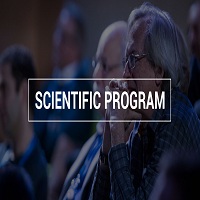
Seong-Soo Roh
Daegu Haany University, Republic of Korea
Title: Diospyros kaki Fruit and Citrus unshiu Peel mixture (PCM) enhances fecal lipid excretion through the inhibition of fat absorption
Biography
Biography: Seong-Soo Roh
Abstract
This study aimed to investigate the action of Diospyros kaki fruit (young persimmon) and Citrus unshiu peel mixture extract (PCM) on the excretion of diatery triglyceride in high-fat diet-induced obese mice. The inhibitory activity on pancreatic lipase of PCM was evaluated in vitro and its anti-obesity effects were studied based on the serum, liver, and fecal triglyceride level analysis from high-fat diet (HFD)-fed mice in vivo. Moreover, we measured the protein expressions of AMP-activated protein kinase alpha (AMPKa), the fatty acid oxidation and thermogenesis-related genes (e.g., PPARα, CPT-1, and UCP-2) and lipogenesis-related genes (e.g., SREBP-1, SREBP-2, ACC, SCD-1, and HMGCR) with western blot in the liver. Hepatic functional parameters were analyzed in the serum. PCM exhibited the inhibitory effect on lipase activity with an IC50 value of 428.9 μg/mL. Moreover, the diatery TG by the PCM200 treatment was significantly excreted to the fece. Furthermore, PCM200 treated mice increased significantly the level of phosphorylated AMPKα in obese mice. Lipogenesis-related protein expressions in PCM200 were marked reduced compared to these of HFD control mice. Whereas, PCM administration didn’t show an effect on fatty acid oxidation and thermogenesis-related protein expressions. Thus, the PCM treatment produced no obvious adverse effects on the liver function. Taken together, PCM promoted fecal lipid excretion by inhibiting intestinal absorption of dietary fat and improving lipid metabolism via activation of AMPK. Accordingly, these data clearly show that PCM possess an anti-obesity function in mice fed a HFD Accordingly, PCM may be a promising herbal formula in the prevention or treatment of obesity.

